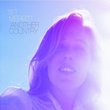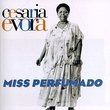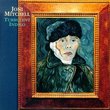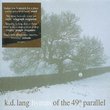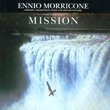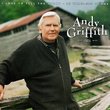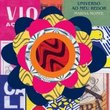| All Artists: Harry Belafonte, Miriam Makeba Title: Evening With Belafonte: Makeba Members Wishing: 0 Total Copies: 0 Label: RCA Victor Europe Release Date: 2/1/1990 Album Type: Import Genres: International Music, Pop, Broadway & Vocalists Styles: Africa, Caribbean & Cuba, Calypso, Easy Listening, Vocal Pop Number of Discs: 1 SwapaCD Credits: 1 UPCs: 0035628987129, 035628987129, 766482086344 |
Search - Harry Belafonte, Miriam Makeba :: Evening With Belafonte: Makeba
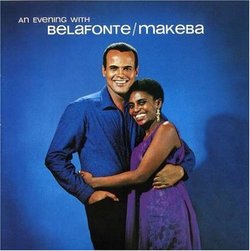 | Harry Belafonte, Miriam Makeba Evening With Belafonte: Makeba Genres: International Music, Pop, Broadway & Vocalists
Full title - An Evening With Belafonte/Makeba. French reissue of 1965 album for the world music stars. 12 tracks. BMG. 2003. |
Larger Image |
CD DetailsSynopsis
Album Description Full title - An Evening With Belafonte/Makeba. French reissue of 1965 album for the world music stars. 12 tracks. BMG. 2003. Similarly Requested CDs
|
CD ReviewsBelafonte and Makeba, a classic folk pairing from 1965. Mary Whipple | New England | 10/22/2004 (5 out of 5 stars) "Forty years have passed since Harry Belafonte and Miriam Makeba first educated their adoring fans about life in South Africa under apartheid, revealing through songs sung entirely in Xhosa, Zulu, Sotho, and Swahili what life was like for black South Africans. Much has changed since then, with South Africa now governed by the black majority, but the messages and the music from the sixties live on in this wonderful collaboration, which recognizes universal hopes and dreams and reflects the longings of all people for freedom. If one were to listen to the songs without looking at the liner notes, one would comment on the melding of Makeba's clear, reedy voice with the whispery, mellow tones of Belafonte, giving their duets a unique sound, blending her forcefulness with his quiet strength. The use of minimal accompaniment, often only bongos, harmonica, drums, and guitar, grounds the vocal sound in reality and creates a mood. Though the songs are gorgeous, most of them, one discovers from the notes, are protest songs, the protest often a quiet recognition of wrongs, rather than a call to action, which is implied. Most memorable for me are "Thula, Thula," one of Belafonte's major hits, a Zulu song which sounds like a lullaby but which is actually a song by boys confined to reform school, saying "Hush, Mama," and "Lullaby," another Belafonte solo, a Zulu song in which a grandparent or father tells a child, "Don't cry, your mother is coming." Makeba solos with "To Those We Love," a song of African leaders confined to prison--Sobukwe, Luthuli, and Mandela--whose names ring out from prison. Like several other songs in Xhosa, this one is characterized by the Xhosa "clicks," a unique part of the language. Several songs use the "call and reply" technique-"In the Land of the Zulus," sung by Makeba, which means "I'll never go to Lululand again, for this is where my father died," with echoes from a male chorus, and in "My Angel," by Makeba and Belafonte (in Swahili), the song of a young man from Kenya, too poor to marry his sweetheart. "Give Us Our Land," a Zulu song, and "Beware, Verwoerd," are warnings to the white world that the black man is on the move. Other songs are rooted in stories of young men going to work in the mines, and warnings from children to their mothers to hide, that the police are on the way. Passionate and controlled, Belafonte and Makeba transcend the "protest movement" of the sixties with an album which is as relevant today as it was when it was recorded and performed around the world a generation ago. Mary Whipple " South African Songs Get Royal Treatment Charlie Brown | Mars, CA United States | 05/27/2003 (4 out of 5 stars) "In this album of Zulu, Xosa and other South African folksongs, Belafonte brings great empathy and tenderness to his renditions; though he is American, his linguistic and musical skills shine brightly and make the songs very accessible. Makeba, Queen of Soth African song, is exciting and soulful as ever. The arrangements are subtle and tasteful. My only criticism is that they sing together only on one song (the beautiful Kenyan number "Malaika") out of twelve. It's like two half solo albums combined! Great listening nonetheless." A classic J. A. Morales | 09/01/2007 (5 out of 5 stars) "This album is great ---talks about an age and shows what two wonderful artists can do together"
|

 Track Listings (12) - Disc #1
Track Listings (12) - Disc #1